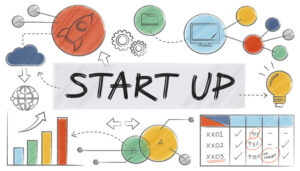Mortgage loans are the key to turning the dream of homeownership into reality for many people. Whether you’re a first-time buyer or looking to upgrade, securing the right mortgage loan can set you on the path to owning your dream home.
In South Africa, where home prices can be a challenge, mortgage loans offer a practical solution by breaking down the cost into manageable payments. With various options available, understanding how they work is essential to finding the best fit for your financial situation.
If you’ve been wondering how to make homeownership a reality, you’re in the right place. Keep reading to discover everything you need to know about mortgage loans and how they can help you take that exciting first step towards owning your own home.
What Are Mortgage Loans?
In simple terms, mortgage loans are loans specifically designed for purchasing real estate. When you take out a mortgage loan, the bank or lender provides you with the funds to buy a home, and you repay the loan over a specified period, usually with interest.
The house you purchase serves as collateral for the loan. If you fail to repay, the lender has the legal right to seize the property to recover their losses.
There are different types of mortgage loans available in South Africa, and understanding your options is critical before committing to one.
Types of Mortgage Loans in South Africa
-
Home Loans (Fixed and Variable Rates)
A home loan is the most common type of mortgage loan. You can opt for a fixed interest rate, which means your repayments will remain the same throughout the loan term, providing predictability. Alternatively, a variable rate means your interest rate will fluctuate according to market conditions, which can lead to lower rates at times but also an increase during high-interest periods. -
90% Loan-to-Value (LTV) Home Loan
This type of loan allows you to borrow up to 90% of the home’s value. It means you will need to make a down payment of at least 10% of the property’s purchase price. This is a good option for first-time homebuyers who may not have a large initial deposit but can manage monthly repayments. -
100% Loan-to-Value Home Loan
In some cases, lenders may offer 100% financing, meaning you don’t need a deposit. However, these mortgage loans are more difficult to secure and often come with higher interest rates. This type of loan is best for those who need to secure a property quickly but have the financial capacity to meet higher monthly repayments. -
Government-Backed Loans
For those with lower income or first-time buyers, South African government initiatives, such as the FLISP (Finance Linked Individual Subsidy Programme), can offer assistance. These programs make it easier to access mortgage loans, sometimes with lower interest rates or subsidies to reduce the financial burden.
How Do Mortgage Loans Work in South Africa?
The process of getting a mortgage loan in South Africa generally follows these steps:
-
Pre-Approval
Before you start house hunting, it’s a good idea to get pre-approved for a mortgage loan. This involves meeting with a lender who will assess your financial situation, including your income, debts, and credit score. The lender will then provide you with a loan offer, outlining the amount you’re eligible to borrow and the interest rates. -
Choosing a Home
Once pre-approved, you can begin searching for your dream home within your budget. With the pre-approval in hand, you’ll have a clear idea of how much you can afford, making the house-hunting process smoother. -
Submitting Your Application
After selecting a property, you will submit a formal application for the mortgage loan. This will include the sales agreement, proof of identity, proof of income, and other documentation requested by the lender. -
Approval and Offer
The lender will assess the property, confirm your details, and issue a formal loan offer if everything checks out. Once you accept the offer, the loan is officially approved, and the funds are released to purchase the property. -
Repayment
You will begin repaying the loan, including interest, over the agreed term. Mortgages in South Africa typically range from 10 to 30 years. Your monthly payment will include both principal and interest. The property remains collateral until the loan is fully repaid.
Key Considerations When Applying for Mortgage Loans in South Africa
-
Interest Rates
The interest rate on your mortgage loan is one of the most important factors, as it determines how much you will pay each month and the total amount repaid over the life of the loan. Always compare rates from different lenders to ensure you get the best deal. -
Affordability
While a mortgage loan may seem like an easy way to afford a home, it’s essential to assess your ability to repay the loan. Lenders will assess your affordability, considering your monthly income, debts, and other financial obligations. It’s crucial to borrow only what you can comfortably repay. -
Credit Score
Your credit score plays a significant role in the approval process for mortgage loans. Lenders use your credit history to determine your reliability as a borrower. If you have a poor credit score, you may face higher interest rates or even be denied a loan. It’s advisable to check your credit score before applying and work on improving it if necessary. -
Down Payment
In many cases, you will need to make a down payment, usually between 5% and 20% of the home’s value. The higher your down payment, the lower your loan amount, which can lead to smaller monthly repayments. If you’re struggling to save for a down payment, consider government subsidies or assistance programs. -
Insurance
It’s advisable to get home loan protection insurance, which covers your mortgage loan payments in case of unforeseen circumstances such as illness or job loss. This added safety net can offer peace of mind while you focus on building your new life in your home.
Benefits of Mortgage Loans for South Africans
-
Access to Homeownership
The most obvious benefit of mortgage loans is that they make homeownership more accessible. Without a mortgage, it can be difficult, if not impossible, to afford the high costs of buying a home. By spreading the cost of the property over many years, you can secure a place to call your own. -
Wealth Building
Paying off a mortgage loan builds equity in your property. As you pay down the loan, your ownership stake in the property increases. Over time, if property values rise, you may be able to sell for a profit. -
Stability and Security
Owning a home provides stability and security for you and your family. It’s an asset that can appreciate in value, and unlike renting, you won’t face rent hikes or eviction notices. With a mortgage loan, you’re investing in a property that can serve as both a home and an asset for the future.
Conclusion
For many South Africans, mortgage loans are the key to making homeownership a reality. They provide a pathway to purchasing property without needing the full upfront cost, offering the flexibility to pay off the loan over time.
By understanding the different types of mortgage loans, considering your financial situation, and working with the right lender, you can navigate the process successfully and secure your own home.
Homeownership is not just about owning property—it’s about investing in your future, creating stability, and realizing the dream of a place to call your own.





